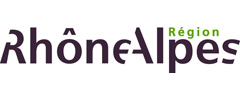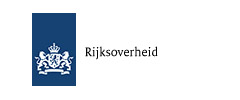High Level Multi-stakeholder Dialogue
Question from the Dutch Minister to Women as a Major Group
16.05.2007 |Sabine Bock
Given the Dutch government’s commitment to allocate substantial resources for expanding access to energy in developing countries, especially for women, what concrete actions would represent the best use of those resources to create benefits to women?
Based on stakeholder consultations in 19 different countries in preparation for CSD 14 and 15, we have found that women collecting traditional biomass fuels are already providing a large majority of the energy consumed in many African and Asian countries. The time and effort involved in collecting and managing increasingly scarce fuels limits women and girl’s opportunities for education and income generation, and is an obstacle to progress in national economic development.
What we recommend is an investment programme that enhances women’s existing roles as energy providers by promoting the development of new income-generating enterprises for women within the energy sector. This will expand access to cleaner, more efficient, energy technologies while at the same time empowering women as business managers. Such enterprises could include:
- Distribution and marketing of cleaner cooking fuels, including LPG, butane and kerosene) within easy access for targeted communities.
- Sustainable local production of biofuels and biomass;
- Up scaling programmes for the construction and dissemination of improved stoves,, biogas systems and solar cookers;
- Management of home or village-scale electrical generating equipment, including solar, wind, hydro and diesel power systems; and
- Designs for equipment that conserve energy and promote energy efficiency.
Elements of such an investment programme would include:
- Training and education programmes for women regarding energy technology options, technical expertise needed to operate and maintain selected technologies, and basic business management procedures for small-scale entrepreneurs;
- Creation or expansion of networks of women’s organisations and cooperatives to engage in energy enterprises and produce and distribute energy-related equipment;
- Expansion of rural extension services to target women farmers and support local, sustainable production of biofuels for village power; and
- Provision of grants and credit facilities for women energy entrepreneurs.
Thanks you.
WOMEN AS A MAJOR GROUP STATEMENT FOR MULTISTAKEHOLDER DAILOGUE OF
THE HIGH LEVEL SEGEMNT OF CSD 15
10th May 2007
Good afternoon Mr Chair and distinguished Ministers
Women as a Major Group appreciate the efforts of governments and the CSD bureau to incorporate gender as a cross-cutting issue in the important thematic areas of energy for sustainable development, climate change, air pollution and industrial development.
Mainstreaming a gender perspective into actions to expand access to energy is critical as a way of addressing women’s distinct experiences of poverty and meeting the Millennium Development Goals. Gender mainstreaming requires commitments by governments, international organizations and other institutions to ensure that women’s concerns and contributions - as well as men’s - are represented and taken into account in energy policies, programmes and national poverty reduction strategies, as well as in decision-making processes at all levels. It also requires that investments in energy infrastructure and services be clearly targeted to address the needs and roles of women as managers and suppliers of energy resources.
Key strategies for mainstreaming gender into energy for sustainable development include:
1. Clear targets and timeframes on mainstreaming gender in policies, programmes and projects, such as that adopted by the Netherlands government on access to energy for 10 million people by 2015 with women as a specific target group, that can be monitored and evaluated based on measurable gender-sensitive indicators;
2. Technical training and innovative measures that enhance access to financing for energy-related equipment and enterprise development for women;
3. Gender budgets, audits and gender disaggregated data to inform, guide and be used to ensure transparent and equitable national energy policies and implementation strategies;
4. Capacity building for government officials and development actors on how to use tools to integrate gender approaches into the design and implementation, of energy policies, programmes and projects;
5. Institutional arrangements to ensure women’s effective representation and participation in the energy sector and related organisations, that incorporate an information dissemination strategy on how women can be involved and the expected outcomes of their involvement.
In developing countries, women would benefit most from government strategies to upscale affordable, cleaner and culturally appropriate technologies. These include biogas digesters and solar cookers, as well as cleaner-burning and more efficient cooking fuels and community reforestation programmes.
For countries in transition, where air pollution from industry and motor vehicles are major health and environmental threats, women would benefit from stronger regulation and monitoring of these risks.
With regard to climate change, CSD 15 can play an important role by highlighting women’s particular vulnerabilities to climate change impacts, and also recognizing their potential contributions with regard to mitigation and adaptation activities.
Women as a Major Group strongly support governments that are working towards low carbon development paths and adopting strong targets for energy efficiency and renewable energy technologies. We reject unsustainable energy policies that threaten the health and safety of women and their families through nuclear radiation risks, destructive mining operations, flooding of communities for large hydropower projects and large bio-fuel plantations.
We are eager to participate partnerships with governments following CSD 15 to promote access to clean, safe and affordable energy for the future, including modern cooking fuels, wind and solar systems, small hydro-electric generators, modern bio-fuel systems and energy efficiency mechanisms.
Related News
Congratulations Sascha!
Named thirty-third most influential sustainability fighter in the Netherlands
08.10.2018
Priority Actions to Increase Access to Climate Finance for Non-State Actors
SB48 side event: 7 May 2018 at 16:45 CEST in room 181, UNFCCC, Bonn
03.05.2018
Call for Action on Gender and a Pollution Free Planet
UNEA-3 meeting of Women Ministers and Leaders presents Call for Action
09.01.2018
PRESS CONFERENCE: Gender Just Climate Solutions
Watch the press conference hosted today during UNFCCC's Gender Day at the climate negotiations in Bonn (COP23)
14.11.2017
Icons of sustainability: climate change resistance as an art form
Bonn, Gender Just Climate Solutions opening ceremony, coordinated by WECF on behalf of the Women & Gender Constituency's
11.11.2017






































